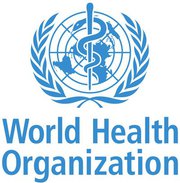Civil society groups seek revision of WHO guidelines on Similar Biotherapeutic Products evaluation

- Country:
- India
Over 60 civil society organisations from across the world have written to the Director General of WHO demanding revision of the global health body's 'Guidelines on Evaluation of Similar Biotherapeutic Products (SBPs)' which were adopted in 2009. The regulatory framework for approval of SPBs, put in place by many countries, including India, is in accordance with the WHO guidelines, which the groups claim are "unnecessarily cumbersome".
They allege that the "failure" of the WHO Secretariat to update the guidelines in line with current scientific evidence and technological advances, "compromises access to affordable biotherapeutic products" and has "grave consequences for the realization of the right to health and the right to enjoy scientific progress." Biotherapeutic medicines, also known as biologics, are produced through biological processes and differ from the older generation small-molecule medicines that are derived through chemical synthesis.
They have advantages over small molecule medicines as they can be designed to hit specific 'targets' in the body and currently dominate treatments for cancers and autoimmune disorders. Biotherapeutics such as Humira (adalimumab), Keytruda (pembrolizumab), Enbrel (etanercept), Herceptin (trastuzumab) and Avastin (bevacizumab) and Rituxan (rituximab) are among the top-selling medicines globally in 2018 in terms of revenue.
Just as generics are non-innovator versions of small molecule medicines, biotherapeutic products or "biosimilars" are follow-on versions of innovator biologic products. "Unfortunately, both accessibility and affordability of this new class of medicines in developing countries are abysmally poor, owing largely due to their high prices.
"Unlike small molecules, where generic uptake is high, the road to the uptake of similar biotherapeutic products is paved with many obstacles, including but not limited to technology, intellectual property and regulatory requirements," said Chetali Rao, an independent lawyer working on law and policy related to bio-therapeutics. Civil society groups claim that even though a Resolution of the World Health Assembly in 2014 mandates the Director-General to convene the WHO Expert Committee on Biological Standardization to update the 2009 guidelines, till date, the secretariat has neither updated the SBP guidelines nor has the WHO given any scientific reasons for the decision.
In particular, the groups have raised concerns that the "current SBP guidelines insist on the head to head comparison of non-originator biotherapeutic product with the originator product with the goal of establishing similarity in quality, safety, and efficacy". Citing a memorandum signed by eight scientists calling for the revision of the SBP guidelines, they claim that "this insistence of comparative clinical trials makes the development of non-originator biotherapeutic products expensive and time-consuming.
In addition, there is increasing robust scientific evidence that calls into question the need for comparative clinical trials for the approval of non-originator biotherapeutic products. The groups including Cancer Patients Aid Association (India), Section 27 (South Africa), Third World Network (Malaysia), Fundación IFARMA (Colombia) and Treatment Action Group (USA) have demanded that WHO, in its capacity as the directing and coordinating authority on international health, promptly make public the scientific reasons for insisting on comparative clinical trials for the approval of SBP, urgently take measures to update the SBP Guidelines.
They also sought public consultations to be held to review the scientific evidence with respect to the need for comparative clinical trials, among other things.
(This story has not been edited by Devdiscourse staff and is auto-generated from a syndicated feed.)
- READ MORE ON:
- Director General
- civil society organisations
- Guidelines on Evaluation of Similar Biotherapeutic Products
- medicines
- SBPs
- biotherapeutic products
- Enbrel
- Chetali Rao
- India
- secretariat
- innovator biologic products
- Civil society groups
- rituximab
- bevacizumab
- adalimumab
- Rituxan
- Keytruda
- Avastin
- Humira
- Treatment Action Group










